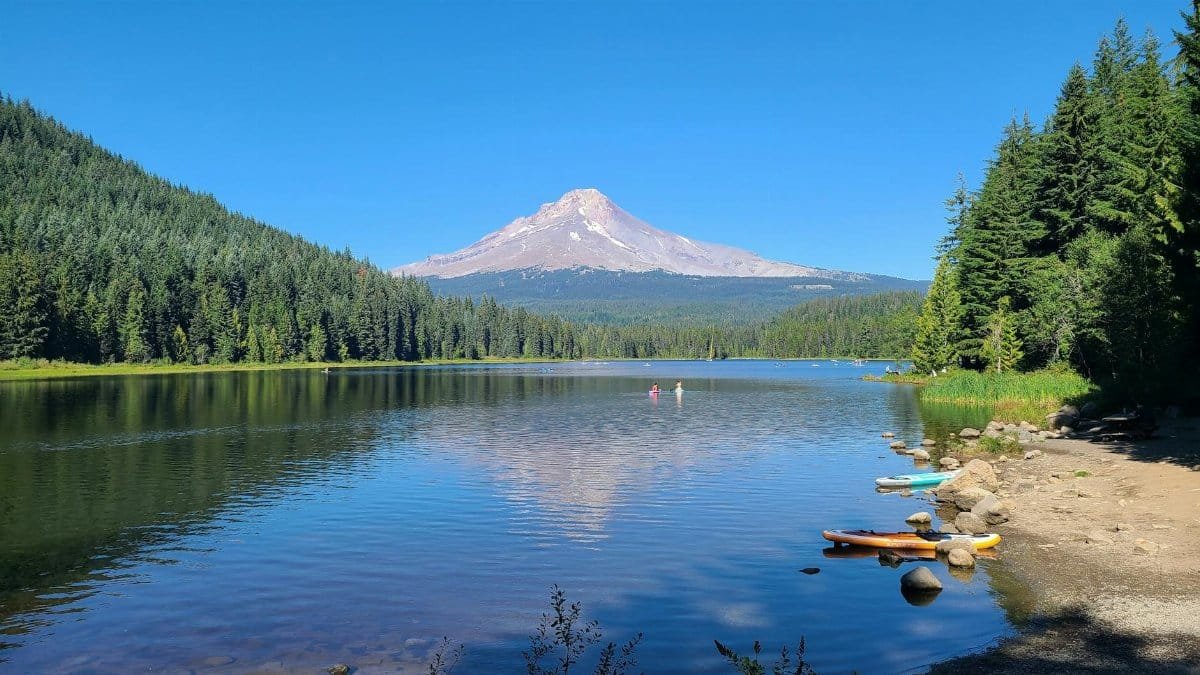A recent study from the American Psychological Association shows that nearly 60 percent of Americans report high levels of stress, up from previous years, with many turning to alternative therapies for relief. This surge reflects a broader shift toward holistic mental health practices amid ongoing workplace pressures and societal changes. In Portland, Oregon, this trend is manifesting in the rising popularity of hypnotherapy retreats, where participants seek hypnosis recovery therapy to unwind and rebuild. As demand grows, new centers are sprouting up in the lush outskirts, offering immersive experiences that blend guided trance states with nature immersion. It’s a response to a collective yearning for deeper healing in a fast-moving world.
The Roots of Hypnotherapy in the Pacific Northwest

Portland’s embrace of hypnotherapy didn’t emerge in a vacuum. The city’s long-standing affinity for alternative wellness, from yoga studios to herbal apothecaries, sets a fertile ground. Hypnosis, as a tool for recovery, traces back to early 20th-century practices but has evolved here into something distinctly local. Therapists incorporate elements like forest bathing, drawing on the region’s abundant greenery. One practitioner recalled a session where a client, overwhelmed by tech job burnout, found clarity amid the evergreens. This integration highlights how hypnosis recovery therapy adapts to cultural contexts, making it more accessible. Studies support its efficacy; for instance, research from the National Institutes of Health indicates hypnosis can reduce anxiety by up to 30 percent in some cases.NIH Study on Hypnosis for Anxiety.
Yet, not everyone arrives convinced. Skepticism lingers, often rooted in misconceptions from old movies portraying hypnosis as mind control. In reality, it’s a collaborative process, where the therapist guides but the individual drives the change. This nuance is key in Portland’s scene, where community workshops demystify the practice.
Rising Demand Amid Workplace Stress

Consider the daily grind in Portland’s thriving tech and creative sectors. Employees juggle deadlines, remote work challenges, and economic uncertainties. No wonder hypnosis recovery therapy is gaining traction as a counterbalance. A report from the Pew Research Center notes that mental health concerns have spiked since the pandemic, with alternative therapies filling gaps in traditional care.Pew Research on Mental Health Trends.
One anonymous account shared online described a breakthrough: after months of insomnia from job stress, a retreat session unlocked restful sleep patterns. It wasn’t magic, but a rewiring of subconscious habits. Such stories proliferate, fueling the expansion of retreats near the city. Providers report waitlists stretching weeks, a sign of genuine need.
The appeal lies in its non-invasive nature. Unlike medication, hypnosis taps into the mind’s own resources, offering sustainable tools for long-term recovery.
What Happens at a Hypnotherapy Retreat

Step into a typical retreat, and the atmosphere shifts immediately. Soft lighting, aromatic herbs, and the distant sound of a stream set the stage. Sessions begin with group discussions, easing participants into vulnerability. Then comes the core: guided hypnosis, where therapists use rhythmic speech to induce relaxation.
For recovery therapy, the focus might target specific traumas or habits. Imagine a participant visualizing a safe space, releasing pent-up emotions. It’s intimate yet structured, often spanning several days for deeper immersion. Experts from Stanford University have explored how such trance states alter brain activity, promoting neuroplasticity.Stanford Study on Brain Changes in Hypnosis.
Breaks include mindfulness walks or journaling, reinforcing the therapeutic work. Attendees leave with recordings for home practice, extending the benefits.
Challenges and Misconceptions

Not all paths to hypnosis recovery therapy are smooth. Some face resistance from family or friends who view it as fringe. Accessibility remains an issue; retreats can cost hundreds, pricing out lower-income seekers. In Portland, efforts to offer sliding-scale options are emerging, but gaps persist.
Misconceptions abound too. People worry about losing control or being manipulated. Therapists counter this by emphasizing consent and empowerment. A brief anecdote: during a session, a newcomer hesitated, but the group’s supportive energy shifted her perspective. She later described it as liberating, not coercive.
Regulatory hurdles add complexity. While hypnosis isn’t federally regulated, state guidelines vary, prompting calls for standardization to ensure safety.
Personal Stories of Transformation

Transformation often starts small. Take the case of a middle-aged accountant from Beaverton, just outside Portland, who attended a retreat after a divorce. Plagued by self-doubt, he used hypnosis to reframe his narrative. Weeks later, he pursued a long-forgotten passion for painting. Such shifts illustrate the therapy’s potential.
Another story comes from a nurse dealing with pandemic burnout. Through recovery-focused sessions, she accessed buried resilience, returning to work with renewed vigor. These narratives, shared in local wellness circles, underscore hypnosis’s role in personal rebirth.
Research backs this; a meta-analysis from the Mayo Clinic suggests hypnosis aids in pain management and emotional healing.Mayo Clinic Overview on Hypnosis Benefits.
Expanding Retreat Options Near Portland

As demand surges, new retreats are popping up in areas like the Columbia River Gorge and Willamette Valley. These spots leverage natural beauty to enhance therapeutic effects. One emerging center plans eco-friendly cabins with on-site hypnotherapists, aiming for a 2025 launch.
This growth mirrors national trends. The CDC reports increasing interest in complementary therapies for mental health.CDC Data on Complementary Health Approaches. In Portland, it’s amplified by the city’s progressive ethos.
Providers are innovating too, incorporating virtual elements for hybrid experiences, broadening reach.
The Science Behind Hypnosis Recovery

Dive into the mechanics, and hypnosis reveals itself as a brain science. It modulates the default mode network, allowing focused attention on recovery goals. Neuroimaging studies show reduced activity in stress-related areas during sessions.
For therapy, this means breaking cycles of negative thinking. Patients with addiction or PTSD find it particularly helpful, as it accesses subconscious layers traditional talk therapy might miss.
Critics argue for more rigorous trials, but existing evidence is promising. A Harvard review highlights its adjunct role in treatment.Harvard Health Publishing on Hypnosis.
Community Impact and Broader Implications

Beyond individuals, these retreats foster community. Group sessions build connections, combating isolation in a digital age. In Portland, this ties into local movements for collective well-being.
Economically, the boom supports jobs in wellness tourism. Projections for 2025 suggest continued expansion, with retreats drawing visitors from across the U.S.
Yet, questions arise about equity. Who gets access? Advocates push for inclusive models, ensuring hypnosis recovery therapy benefits diverse populations.
Looking Ahead: Sustainability in Growth

As retreats multiply, sustainability becomes crucial. Providers are adopting green practices, like solar-powered facilities, aligning with Portland’s environmental values.
The future holds potential for integration with mainstream healthcare. Partnerships with hospitals could normalize hypnosis recovery therapy, making it a standard option for stress management.
Ultimately, this trend reflects a societal pivot toward proactive mental health, with Portland leading the way.
